On Nov. 3, 2020, a record number of emergency physicians will be on the ballot for election to the U.S. House of Representatives. Incumbents Mark Green, MD, and Raul Ruiz, MD, MPH, MPP, will be seeking reelection, while Ronny Jackson, MD; Rich McCormick, MD, MBA; and Hiral Tipirneni, MD, are seeking to increase the ranks of emergency physicians elected to federal office. Each of the emergency physicians running took some time to discuss their personal stories with me and answer a few questions to provide you with a sense of what they view as important issues at this time. Here, presented alphabetically, is a brief profile of each candidate and their responses to the following questions:
Explore This Issue
ACEP Now: Vol 39 – No 10 – October 2020What is the most important issue facing the nation today?
What is the campaign issue that are you most passionate about?
In the midst of the pandemic, health care insurers are making record profits while emergency physician practices are challenged by significant decreases in emergency department volumes. What can Congress do to ensure that health care insurers spend more on patient care and less on profits for shareholders?
Rep. Mark Green, MD (R, incumbent TN-7)
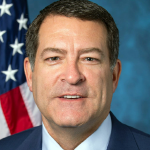 Following his graduation from West Point, Dr. Green was initially an infantry officer. He graduated from Boonshoft School of Medicine at Wright State University and became a flight surgeon, serving tours of duty in the Afghanistan War and Iraq War. He authored a book about his experience in Operation Red Dawn, which saw the capture of Saddam Hussein. Following his military retirement in 2006, Dr. Green founded a hospital emergency department physician group in Tennessee as well as two free clinics.
Following his graduation from West Point, Dr. Green was initially an infantry officer. He graduated from Boonshoft School of Medicine at Wright State University and became a flight surgeon, serving tours of duty in the Afghanistan War and Iraq War. He authored a book about his experience in Operation Red Dawn, which saw the capture of Saddam Hussein. Following his military retirement in 2006, Dr. Green founded a hospital emergency department physician group in Tennessee as well as two free clinics.
Dr. Green first entered politics in 2012 by defeating Democratic incumbent Tim Barnes for a seat in the Tennessee State Senate. When Rep. Marsha Blackburn announced her candidacy for the United States Senate in 2018, Dr. Green announced his campaign to succeed her and was sworn into his first term of office in January 2019 and currently serves on the Foreign Affairs, Homeland Security, and Oversight and Reform committees. Dr. Green has sponsored legislation important to emergency medicine, especially in the areas of rural health and access to care.
- “In the near term, the most important issue is obviously the COVID-19 pandemic. As a nation, we need to stay focused on addressing the challenges created by COVID. We need to continue to find innovative ways to address those challenges, like the creation of Operation Airbridge to improve the availability of PPE [personal protective equipment] and Operation Warp Speed to speed the develop of vaccines. We need to make sure that we have vaccines that are safe and that everyone who’s eligible gets vaccinated.”
- “For me, running here in the Tennessee 7th district, the issues that are most important to my constituents are safety and security. People are concerned about local safety with rioting and protests but also still concerned about the global threats of terrorism and what a Russia/China alliance would mean to global security. The other issue that I am focusing on is how to improve our economy and reduce the national debt. [Also,] our fiscal House powers our national security, and we need to find ways to safely get our economy growing again.”
- “We have to defend the doctor-patient relationship. Insurers have put a wedge between doctors and patients. My role, as an emergency physician in Congress, is to educate the Congressional leaders and my colleagues on how legislation that only helps insurance companies will have devastating downstream effects on the stability of our health care delivery system in this country. I need the help of every emergency physician to amplify that message by taking the time to educate their individual members of Congress.”
Rear Admiral (Ret.) Ronny Jackson, MD (R, candidate TX-13)
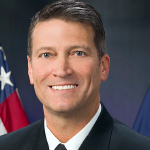 Born and raised in the town of Levelland, Texas, Dr. Jackson graduated from Texas A&M University at Galveston and then attended medical school at the University of Texas Medical Branch. During his time in medical school, he served in the Navy Reserves and immediately upon graduating in 1995 began his active-duty military career as an officer in the U.S. Navy. In 2001, after five years in the Navy Diving community, Dr. Jackson returned to the Naval Hospital in Portsmouth, Virginia, to complete his residency in emergency medicine.
Born and raised in the town of Levelland, Texas, Dr. Jackson graduated from Texas A&M University at Galveston and then attended medical school at the University of Texas Medical Branch. During his time in medical school, he served in the Navy Reserves and immediately upon graduating in 1995 began his active-duty military career as an officer in the U.S. Navy. In 2001, after five years in the Navy Diving community, Dr. Jackson returned to the Naval Hospital in Portsmouth, Virginia, to complete his residency in emergency medicine.
In 2006, while serving in Iraq, Dr. Jackson was selected as a White House physician in the George W. Bush administration. Over the next 14 years, he served three administrations including serving as the director of executive health care for the president’s cabinet and senior staff, physician to the White House, and commanding officer of the White House medical unit. In January 2019, President Donald J. Trump appointed Dr. Jackson as assistant to the president and to the newly established role of chief medical advisor to the White House and the Executive Office of the President.
Dr. Jackson retired from the military as rear admiral on Dec. 1, 2019, with his last duty assignment at the White House.
- “The most important issues facing the nation today are related to our safety and security, including our medical, economic, and physical safety. As a nation, we are being challenged by COVID-19 and its effect on all aspects of our daily life. We need to continue to rally all the resources at all disposal and work together to ensure that we get our country safely moving forward toward a return to normal.”
- “In my campaign I am most passionate and excited about the opportunity to be a voice in D.C. that truly represents the people and being a voice for doing the right thing. I am not afraid to challenge my Congressional colleagues on both sides of the aisle to focus on passing thoughtful and sensible legislation that reflects what is best for the entire nation.”
- “As a member of Congress, I will work to ensure that insurance companies, especially large, for-profit companies, do not get to use their size and large profits to take advantage of frontline physicians or small and rural hospitals. As physicians, we also need to educate and remind our patients that we are their advocates in the health care policy debate. I will push for insurance companies to be more transparent in how health care premium dollars are being spent and how physicians are not the real problem in the increasing cost of health care in this country.”
Rich McCormick, MD, MBA (R, candidate GA-7)
 Dr. McCormick is a graduate of Morehouse School of Medicine in Atlanta, where he was also student body president. He completed a residency in emergency medicine through Emory while training at Grady Hospital in Atlanta. He received his MBA from National University in La Jolla, California. With over 20 years in the U.S. Marine Corps and Navy, Dr. McCormick served in combat zones in Africa, the Persian Gulf, and Afghanistan. As a Marine, he flew helicopters and taught at Georgia Tech and Morehouse College as the Marine officer instructor. In the Navy, Dr. McCormick earned the rank of commander and served as the department head for the emergency medicine department in Afghanistan. At the completion of his military medicine career, Dr. McCormick returned to private clinical practice and currently practices at Gwinnett Medical Center and Northside Hospital in Georgia.
Dr. McCormick is a graduate of Morehouse School of Medicine in Atlanta, where he was also student body president. He completed a residency in emergency medicine through Emory while training at Grady Hospital in Atlanta. He received his MBA from National University in La Jolla, California. With over 20 years in the U.S. Marine Corps and Navy, Dr. McCormick served in combat zones in Africa, the Persian Gulf, and Afghanistan. As a Marine, he flew helicopters and taught at Georgia Tech and Morehouse College as the Marine officer instructor. In the Navy, Dr. McCormick earned the rank of commander and served as the department head for the emergency medicine department in Afghanistan. At the completion of his military medicine career, Dr. McCormick returned to private clinical practice and currently practices at Gwinnett Medical Center and Northside Hospital in Georgia.
- “I believe that we have to stop the march toward thinking that government is the solution to our problems. We have been asking government to fix the problems that they created. Government may be well intentioned, but too much government regulation has reduced physician compensation and given physicians less control over the most important part of health care…the doctor-patient relationship.”
- “We need to keep government ‘right-sized’ by reducing government expansion and by expanding the private-sector economy by deregulation. Only by growing the private-sector economy can the United States be a country that people will want to come to because of economic opportunity, freedom, and the potential for upward mobility.”
- “We must think outside the box and replace the antiquated system of health care insurance. The current system of health care insurance has no pricing transparency, limits flexibility, and creates no incentives for patient choice. By reducing government regulation, we can encourage more competition. We need to increase care delivery directly from physicians to patients, reducing the cost of intermediaries in health care delivery.”
Rep. Raul Ruiz, MD, MPH, MPP (D, incumbent CA-36)
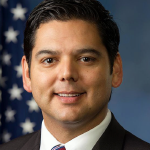 Dr. Ruiz grew up in the community of Coachella, California, where both of his parents were farmworkers.
Dr. Ruiz grew up in the community of Coachella, California, where both of his parents were farmworkers.
Dr. Ruiz achieved his lifelong dream of becoming a physician through public education. After graduating from Coachella Valley High School, Dr. Ruiz graduated magna cum laude from UCLA in Los Angeles. He went on to Harvard University in Boston, where he earned his medical degree as well as a masters of public policy from the Kennedy School of Government and a masters of public health from the School of Public Health, becoming the first Latino to earn three graduate degrees from Harvard University. He completed his residency in emergency medicine at the University of Pittsburgh and a fellowship in international emergency medicine at Brigham and Women’s Hospital in Boston.
Dr. Ruiz worked full-time as an emergency physician until he was elected to the U.S. House of Representatives, where he serves on the House Energy & Commerce Committee. Dr. Ruiz has sponsored many bills important to emergency medicine, including surprise medical billing, mental illness care, and veterans’ care.
- “The most important issue is our national and global response to the COVID-19 pandemic. Our goal as a nation must be to navigate through all of the challenges posed by the pandemic as quickly and safely as possible. We must rely on the evolving medical and public health science to guide our decisions and actions on the health care, public health, and economic arenas.”
- “Without a doubt, the issue that I am most passionate about is health care and health care system improvement. Our health care system still has too many people fall through gaps in care, is too difficult for patients to navigate, and too expensive for the nation. We have to protect people by increasing access to care, lowering the high costs of prescription drugs, and improving the quality of care we deliver.”
- “From my position here in the Congress, I support many of the economic programs that have been created or proposed to support physician practices during the pandemic, including the Provider Relief Fund, small business grants, and hazard pay for frontline health care providers. I also strongly believe that physicians deserve a fair legislative solution on the surprise medical billing issue and that this is definitely the wrong time for a ‘bad’ solution. This is also the time for insurance companies be held accountable to meet their required medical loss ratio requirements for spending on health care.”
Hiral Tipirneni, MD (D, candidate AZ-6)
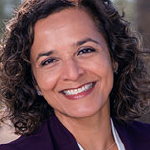 Dr. Tipirneni came to America from India with her family at the age of three. She was raised in a suburb of Cleveland.
Dr. Tipirneni came to America from India with her family at the age of three. She was raised in a suburb of Cleveland.
Following a childhood illness, Dr. Tipirneni was inspired to learn more about medicine, and after graduating from public school, she eventually earned her medical degree through an accelerated, competitive program at Northeast Ohio Medical University. After serving as chief resident of the University of Michigan’s emergency medicine program, Dr. Tipirneni and her family moved to Arizona, where she worked in emergency departments at the Maricopa County Medical Center, Banner Thunderbird, and Abrazo Arrowhead hospitals—all while raising three children in the Arrowhead community.
After losing her mother and nephew to cancer, Dr. Tipirneni directed her passion and problem-solving skills to evaluating and directing funding for cutting-edge cancer research. She now leads teams of researchers, clinicians, and patient advocates in the fight to treat and cure breast cancer, prostate cancer, and childhood leukemia.
- “The loss of value and respect for science and data, because that affects how we address socioeconomic inequity and injustice. Science has become demonized and politicized, which has led to [us] poorly responding to the pandemic.”
- “No surprise…it’s health care. We need to promote policies that create healthy families, healthy communities, and a healthy nation. Good public policies must address the social determinants of health including mental illness, addiction, housing, and food security.”
- “We need to rethink our reimbursement strategies to clinicians toward a system that is based more on value and less on volume of services and procedures performed. The federal government must enforce medical loss ratio requirements that insurers are required to meet.”
Pages: 1 2 3 4 | Multi-Page




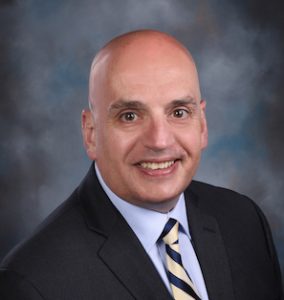
No Responses to “Meet the 5 Emergency Physicians Vying for Congress”